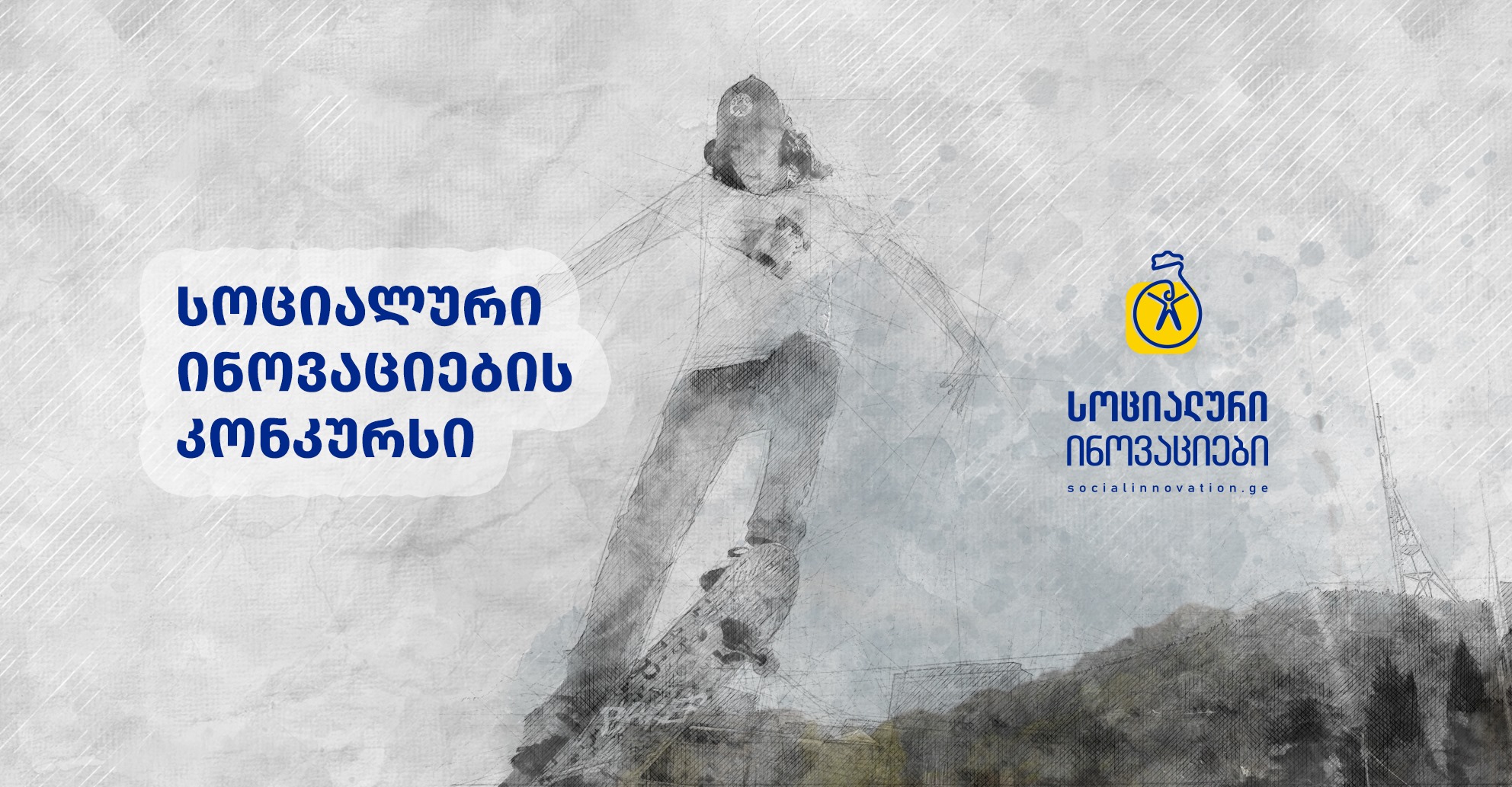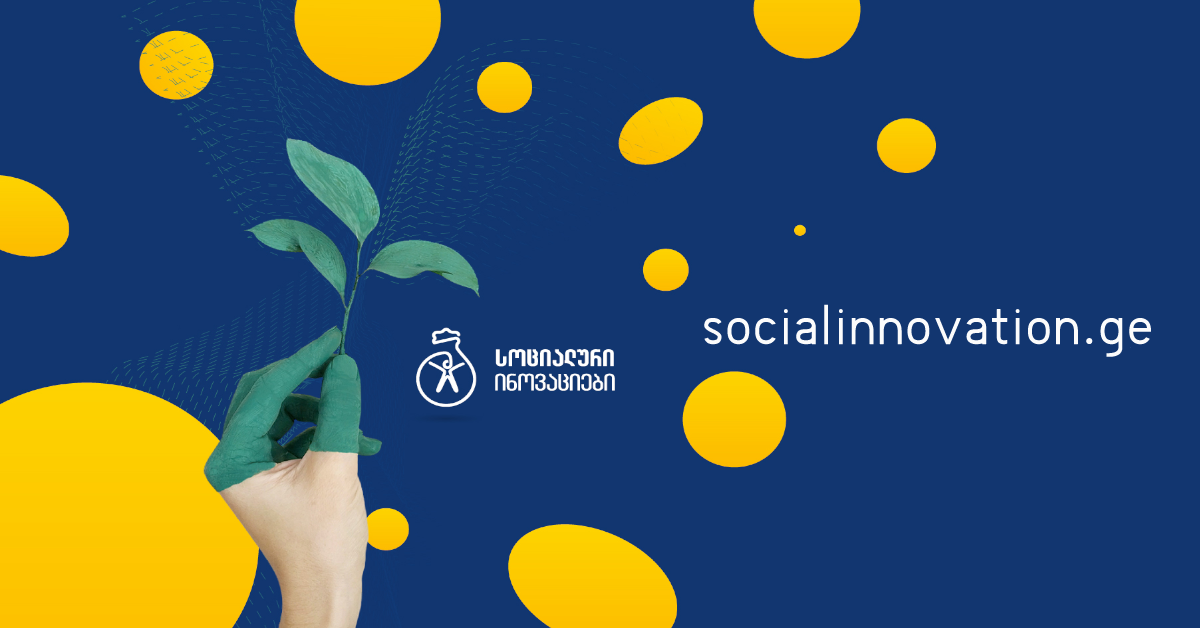by George Chanturia, Local Correspondent from Georgia.
 From the beginning of the 21st century, social innovation has played a key role in both academic debates and the agenda of the international political community. It has gained momentum as a practical solution for tackling social, political, economic and environmental challenges such as poverty, ageing or migration, among others. The term is associated with new ideas that solve social problems. However, there is not just one definition but many:
From the beginning of the 21st century, social innovation has played a key role in both academic debates and the agenda of the international political community. It has gained momentum as a practical solution for tackling social, political, economic and environmental challenges such as poverty, ageing or migration, among others. The term is associated with new ideas that solve social problems. However, there is not just one definition but many:
- “Social innovation refers to innovative activities and services that are motivated by the goal of meeting a social need and that are predominantly developed and diffused through organisations whose primary purposes are social.” (Geoff Mulgan)
- “New ideas that resolve existing social, cultural, economic and environmental challenges for the benefit of people and planet. True social innovation is system-changing –it permanently alters the perceptions, behaviours and structures that previously gave rise to these challenges. Even more simply, social innovation is an idea that works for the public good”. (The Centre for Social Innovation)
- “Social innovation is a novel solution to a social problem that is more effective, efficient, sustainable, or just than existing solutions and for which the value created accrues primarily to society as a whole rather than private individuals.” (Phills, Deiglmeier & Miller, 2008).
- “Social innovation is the process of developing and deploying effective solutions to challenging and often systemic social and environmental issues in support of social progress” (Centre for Social Innovation, Stanford).
Currently, social innovations are gaining momentum in Georgia, as well. With that purpose, Georgia’s Innovation and Technology Agency was created in 2014. Their mission is to form an ecosystem that would improve all kinds of innovations and technologies in the country, promote a commercialization of knowledge and innovations, stimulate using them in all fields of economy, create an environment for the growth of innovations and high-tech products and developing high-speed internet nationwide.
Apart from the state, CSOs are actively pursuing this path, as well. E.g. social entrepreneurship development program has been the priority for the Center for Strategic Research and Development of Georgia (CSRDG). The mission is to support a positive social and environmental changes in the society by developing Social Entrepreneurship.
 In that sense, Social Innovation Platform, a project developed by the Center for Training and Consultancy is the latest attempt and opportunity to support this direction. The project is committed to shifting the paradigm of innovation from economic growth to one that generates public and social value. The program is oriented at supporting young social change makers in Georgia to launch and initiate innovative and sustainable solutions. It aims to support development of innovative ideas that are oriented on social changes.
In that sense, Social Innovation Platform, a project developed by the Center for Training and Consultancy is the latest attempt and opportunity to support this direction. The project is committed to shifting the paradigm of innovation from economic growth to one that generates public and social value. The program is oriented at supporting young social change makers in Georgia to launch and initiate innovative and sustainable solutions. It aims to support development of innovative ideas that are oriented on social changes.
The approach is based on consolidating three concepts – social enterprise, social entrepreneurship and social innovation. The three concepts reflect the nuances of ‘change agents’ with the mission of addressing social unjust. They are interrelated and interwoven.
- While social innovation is the idea that suggests novel ways of solving problems;
- social entrepreneurship is the mindset driven by the social entrepreneur; it includes systemic and strategic thinking approaches as well as risky and gutsy decision-making;
- lastly, the social enterprise is the business model that requires specific ways of administration and management.
They work in tandem because they are all bound by the belief that social change is vital to create a society in which everyone prospers through the creation of social value.
Just like EaP Civil Society Facility, the Social Innovation Platform develops the necessary information, resources and opportunities to promote social innovations. One can find foreign literature translated into Georgian, good practice examples, including Georgian cases, terms associated with innovations, interviews with interesting people, articles, quizzes and news on the website. In addition, blogs can be written by the interested parties. There is an open call where anyone could submit their own blog. If it is admitted, the author would receive a small remuneration as well.
Moreover, online courses are developed and available since October. They can be accessed by anyone of interest.
Most importantly, on September 21st, the Social Innovation Competition was announced. The program is oriented at supporting young social change makers in Georgia to launch and initiate innovative and sustainable solutions. The competition is open for everyone aged 21-35. Ideas can be submitted online at the website. The candidates would be selected by a special jury that operates on a voluntary basis. Applications are received until the 15th of December and the winners would receive Euro 10,000. In addition, mentorship and media support for a year. That is why I would encourage anyone who is interested in social innovations to participate in the program and use the available resources on the platform.
By the way, two short webinars on social entrepreneurship was hosted by the EaP Civil Society Facility – (1) Introduction to Civil Society Facility and (2) Social Impact – the buzz word, by Tamara Puhovski from Croatia.
References:
Edwards, Michael. The Oxford Handbook of Civil Society. 2011. Oxford University Press.
This article was produced by George Chanturia, the Project’s local correspondent and EaP Civil Society Fellow from Georgia in the framework of the EU-funded ‘Eastern Partnership Civil Society Facility – Regional Actions’ Project. Its contents are the sole responsibility of George Chanturia and do not necessarily reflect the views of the European Union or the Project. The photos are provided by the Local Correspondent.
Read more about our local correspondents here.




